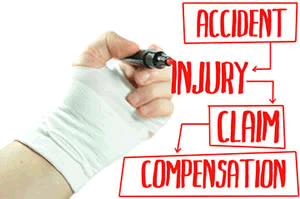Actual Cause
What does Actual Cause mean?
Personal injury claims may be filed against a negligent party if certain elements of the injury claim are proven in court through a preponderance of evidence. After duty and breach of duty are proven, the third element that must be proven is actual or proximate cause. Specifically, the plaintiff must prove, through sufficient evidence, that the defendant’s commission or omission of actions were the actual or proximate cause of harm suffered by the plaintiff.
For example, if the plaintiff is arguing that their fence was destroyed because a drunk driver plowed into it, the court would consider whether the loss of the fence would have occurred if not for the actions of the defendant. In this case it would be fairly easy for the court to determine that the driver’s actions were the actual cause of the destruction of the fence.
Actual Cause versus Proximate Cause
In some cases, if actual cause is not as obvious, the courts may consider proximate cause. In this case the courts will review whether the defendant should have reasonably foreseen that their actions could have caused injury or loss.
For example, if someone has broken a glass at a restaurant and the restaurant fails to clean up the broken glass (over a reasonable period of time), and a patron cuts themselves on the glass, the restaurant may be held liable for the injury. If, however, there was an unforeseeable event, such as an earthquake, criminal action, or an intentional tort committed by a third party which creates a hazardous situation, these events may break the chain of causation, eliminating the claim of negligence.
Contributory Negligence Versus Comparative Negligence
The discussion of actual cause is not complete without discussing whether or not the plaintiff may have contributed to their own injuries and how this can affect their right to receive compensation. For example, compensation may be lowered or eliminated based on a state’s laws, specifically, whether the state uses the theory of comparative or contributory negligence.
State laws vary, but in some states compensation can be eliminated if the court determines the plaintiff was either partly or wholly responsible for their own injuries (contributory negligence). Pure contributory negligence is used in the following states: Alabama, District of Columbia, Maryland, North Carolina, and Virginia.
Other states, however, may determine how much each party was at fault and assess the compensation accordingly (pure comparative negligence). Still other states will have a threshold to determine if the plaintiff is awarded compensation (modified comparative fault).
Thirty-three states currently use some type of modified comparative fault rule. Twelve states use a 50% bar and allow plaintiffs to recover compensation if they are less than 50% at fault for their own injuries. The remaining states use the 51 percent Bar Rule which allows the plaintiff to recover compensation if they are 50% or less responsible for their own injuries.
For example, if you are crossing the street and you do not look both ways and you are hit by a drunk driver that has run a red light, the court may determine you were partly responsible for your own injuries. In the pure contributory state the court could rule that your negligent actions were partly to blame for your injuries and bar you from recovering compensation. In a comparative negligent state, however, whether the court reduces or eliminates your right to compensation may depend on the percentage of fault assigned to you.
Talk to a personal injury lawyer if you have questions about actual cause, comparative and contributory negligence, and the statute of limitations for filing an injury claim in your state.
Related Pages
Lawyers near
Term of the Day
Future Earning Capacity
A worker's future earning capacity (FEC) is the amount of money or compensation a worker will be able to earn in the future.
Category: Workers Compensation









